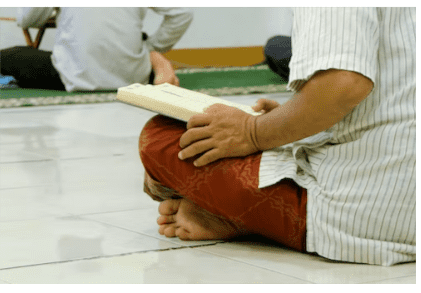What is Confidence?
Learn about the power of confidence and how to use it in your life for your goals and success.

Selfpause Affirmation App
Download the app to get 1,000’s of affirmation meditations and everything you need to write, record and listen to your own.
Confidence is a feeling of calm certainty about something. It can be the belief that a prediction, hypothesis, or course of action is correct. The word confidence comes from the Latin word ‘fidere’, which means “to trust.” Self-confidence is a feeling of trust in oneself and in your own abilities.
Self-belief
Confidence is the ability to feel clear-headed and believe that what you are doing is the correct course of action. The ability to trust yourself is the foundation of self-belief. Confidence can help you make decisions and achieve your goals.
A common way to boost your self-belief is to focus on the positive aspects of your life. For example, you can write a gratitude list and write down your accomplishments. Display the list where you can see it often. It will serve as a reminder of your success. Similarly, you can try to engage in new activities that will increase your confidence.
Self-belief is an important part of happiness. Achieving goals that you love makes you feel good about yourself. This makes it easier for you to believe in yourself. Taking risks is a good way to improve your self-belief. You’ll be more likely to be able to handle failures if you are confident.
While self-belief is a valuable tool for personal success, it can limit your capabilities if it is out of alignment with reality. By rebalancing your self-belief, you’ll be able to experience greater joy in where you are now and reach even greater heights in the future.
Inner Peace

There are many different types of confidence, and some people are more self-confident than others. Finding your own inner peace is a good way to improve your confidence and get a feeling of satisfaction from life. It also helps you get rid of anxiety and stress. Developing inner peace will improve your relationship with others and give you a positive outlook on life.
Having your own inner peace is a state of complete happiness and fulfillment that allows you to face life’s challenges without worry. It isn’t boring or unexciting, and it makes it easier to make wise choices. People with inner peace tend to focus on wise choices and avoid chasing after temporary pleasures.
Inner peace can be achieved through the practice of mindfulness and meditation. It can be achieved by accepting yourself and your life in the present moment. Ultimately, it is a personal choice and it is not always easy to find inner peace. Everyone has a different path to inner peace, and it may take a little time to find it.
There are many different types of confidence. Each type has its own set of benefits. For instance, some people seek self-centered confidence, while others strive for inner peace and confidence, which trust in the future.
Faith-filled Confidence

Faith-filled confidence is the ability to look forward to the future with confidence, based on the faithfulness of God. It is a powerful motivating force. Studies on expectations in leadership have shown that it can lead to increased productivity. People who have faith-filled confidence have the ability to change situations. They don’t give in to the pressure of popular opinion. Instead, they listen to God and His Word. They also believe that when they are baptized they receive the companionship of the Holy Spirit, which gives them fresh spiritual energy and hope during difficult times.
Self-perpetuating Prophecy

Confidence can be a powerful tool, but it can also be a dangerous tool. Self-fulfilling prophecies can lead to disastrous consequences. For example, if you believe that you are going to fail a test, you’re likely to not study as hard as you need to. This way, you’ll end up not being able to focus on the subject.
As you may be aware, your expectations are highly influential. By noticing what these expectations are, you can be better able to control the way they affect your life. This can be done on your own or with the help of a professional. Developing a positive mindset can help you achieve your full potential.
One famous example comes from Greek mythology. The Lydian king, Croesus, sought the advice of the Delphic Oracle to invade Persia, but the Oracle predicted that he would destroy the great kingdom. Croesus acted based on his perception of the prophecy, even though the result was disastrous.
In psychology, this kind of confidence can affect you negatively or positively. For instance, if you believe that you’ll lose a game and you don’t win it, you’re likely to lose again. Likewise, when you believe you’ll win the game, you’re boosting your chances of winning.
Getting Out of Your Comfort Zone

When it comes to improving your confidence, you must get out of your comfort zone. When you become too comfortable with a situation, you stop challenging yourself, stop speaking up in meetings, and stop making changes. Getting out of your comfort zone will help you overcome your fears and boost your self-esteem.
Your comfort zone is a psychological construct that traps you in your daily habits and routines. You only take on what is familiar to you, which is one of the biggest reasons why you avoid new experiences. This way, you avoid experiencing the feelings of anxiety, stress, and pain that come from taking risks.
Once you have identified your comfort zone, try stepping outside it gradually. You can start with small steps, like a new exercise regimen or changing your diet. You should also create a visual representation of your comfort zone so you can see what you’re afraid of and identify where you can stretch yourself.
In addition to stepping outside your comfort zone, you should also set higher goals. By doing this, you’ll see how capable and brave you are. Taking risks will also help boost your self-efficacy, which is a sense of belief in your ability to do something. You can also make yourself feel more confident by encouraging yourself and remembering your past successes.
Developing A Positive Self-image

Developing a positive self-image for improved confidence is not an easy process. It takes a conscious effort on your part. The first step is to adopt a more positive attitude. This attitude should still be based on reality. After all, if you don’t feel good about yourself, how can you expect others to do the same? However, there are several strategies you can use to help you develop a more positive self-image.
One such technique is using a self-esteem-building list. List items that describe your ideal self. It is important to include those qualities that you like and value the most. These attributes should be nurtured and exercised.
Visualization is another tool that can help you build confidence. Try to imagine yourself in a confident situation and try to remember the details. This exercise will help you to build your self-image and boost your productivity. Additionally, if you find a hobby or passion that makes you feel good about yourself, it will also help you to develop a positive self-image.
Our Top FAQ's
Confidence is a feeling of self-assurance and belief in one’s abilities. It can involve a sense of trust in one’s own judgment, as well as a feeling of certainty about one’s abilities and qualities.
Having confidence can help you achieve your goals in life by giving you the belief in yourself and your abilities that is necessary to take on challenges and pursue your objectives. When you have confidence, you are more likely to take risks and try new things, which can be crucial for achieving success. Confidence can also help you communicate more effectively and persuasively, which can be useful in many different situations.
There are many strategies that can help you build and maintain confidence. Some of these include setting and achieving small goals, learning new skills, practicing self-care, and surrounding yourself with supportive and positive people. It can also be helpful to challenge negative self-talk and replace it with more positive and constructive thoughts.
An appropriate level of confidence is one that allows you to feel self-assured and capable, but that does not cross over into overconfidence or arrogance. Overconfidence can lead you to underestimate the challenges you may face and make you more prone to taking unnecessary risks, while under confidence can hold you back from pursuing your goals and pursuing opportunities.
It is generally important to display confidence in situations where you need to assert yourself or convey a sense of competence, such as during a job interview or a presentation. However, there may be times when it is more beneficial to be humble and modest, such as when you are seeking advice or trying to build trust with others. It is important to strike a balance and be mindful of the context and the goals you are trying to achieve.
